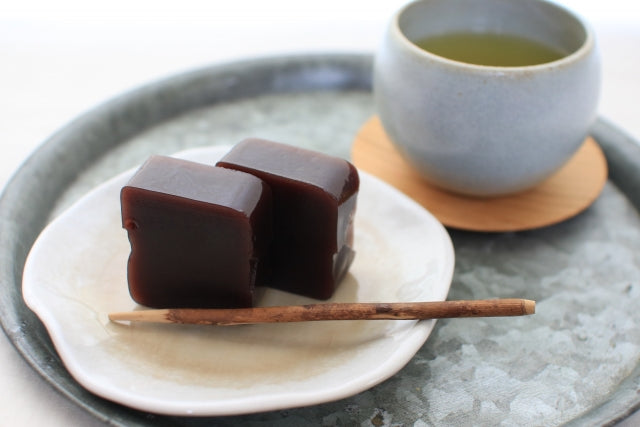
Yokan: A traditional sweet Japanese dessert.
Share
Hello Arab friends. Today we will talk about a traditional Japanese sweet called "Yokan". Yokan may resemble the traditional Arabic sweet "Halawa".
What is yokan?
Yokan is a thick, sweet Japanese confection made primarily from red beans and sugar. It is usually in the form of bars or squares and has a firm texture. While Arabic halva uses flour or semolina, yokan mainly uses red beans.
Origin of the Yukan
The name yukan originates from Chinese cooking. The word "yu" means lamb, and "kan" means hot soup, and originally referred to lamb soup. Yokan arrived in Japan between the late 12th and late 16th centuries. It was introduced by Zen monks returning from China, but since Japanese monks were forbidden to eat meat, they substituted red beans for lamb.
Yokan evolution
From the 17th to the 19th century, yukan evolved from a dish to a dessert. During this period, the following changes occurred:
- Settled as a dessert made of red beans and sugar.
- Change from steamed yokan to ground yokan
- The appearance of the water yokan
Types of Yokan
Currently, there are different types of yokan:
- Ground Yukan : The most common type, it has a soft, pliable texture.
- Steamed Yokan : Preserving the old method of making, it is cooked by steaming.
- Water Yokan : A popular type in summer, made using agar and is soft.
- Yukan Chestnut : A seasonal fall variety that uses chestnuts.
Cultural significance of the Yukan
Yokan plays an important role in the Japanese tea ceremony and gift-giving culture. This is similar to the role of coffee in Arab culture, and the role of sweets in holidays such as Eid. The yokan is especially important on the following occasions:
-
Tea ceremony : As a dessert served with green tea (matcha).
-
Gifts : as an expression of thanks or congratulations.
-
Souvenirs : A popular and easy-to-carry treat for travelers.
Conclusion
Yokan is a Japanese dessert that evolved from a Chinese dish. Its history, diversity and cultural significance have many similarities with the Arab sweets culture. Both cultures enjoy the changing seasons through sweets and deepen people’s bonds. Through yokan, you can learn about a side of Japanese food culture.
At the same time, it can be a good opportunity to reflect on how different cultures around the world express happiness, gratitude and a sense of the season through sweets. If you have the opportunity to visit Japan, we encourage you to try yokan. You will certainly discover similarities and differences with your country's sweets and experience the magic of a new food culture.
